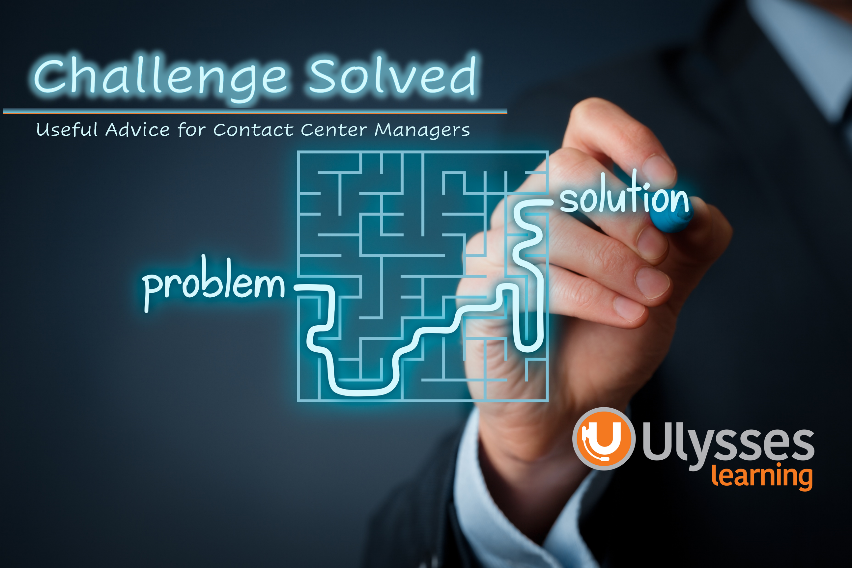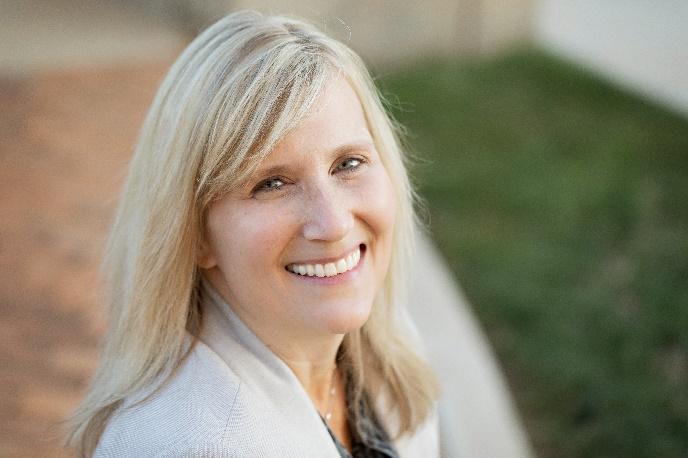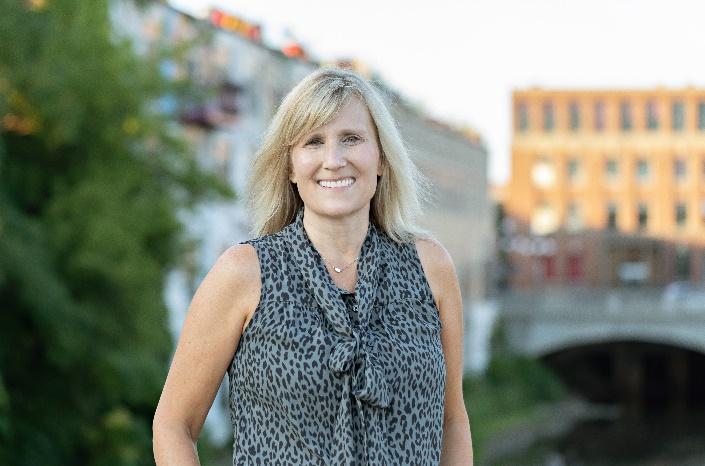Challenge Solved! - An Advice Column For Contact Center Managers

Seasonal contact center performance results got you down?
You’re not alone. Many contact centers, across all industries, are entering that time of the year when their team’s struggle to achieve desired contact center metrics. Some seasoned industry execs have even resigned themselves to the fact that there are times in their business cycle where there’s simply nothing they can do to keep performance from dipping. It’s just out of their control. Read on as Dina Vance weighs in on this important topic. Dina serves as Senior Vice President and Managing Director, North American Operations at Ulysses Learning.
Have your question answered in an upcoming Challenge Solved advice column. Email your question to: ChallengeSolved@ulysseslearning.com
Q: I’m dreading the holiday and, in truth, the whole winter season because each year, without fail, our center’s metrics slip. I’ve been in the utilities industry for 10+ years and I’m out of ideas for turning this seasonal trend around. Any thoughts?
Our featured expert for this month’s question is:

Dina Vance, Senior Vice President, Managing Director of North American Operations at Ulysses Learning
A: Take heart…and take aim! There are specific strategies you can target and put into place today that will get your contact center back on track and keep it that way. I’ll outline four of them now and if you want to discuss additional tips or dive deeper into the ones shared, please reach out to me or one of our Ulysses Learning Senior consultants.
Here are a few tips for your consideration:
#1 ASSESS your bottom 10 percent.
You’ve probably heard the business axiom that your top 10 percent of performers are responsible for achieving 80-90 percent of your best results (ie satisfied customers who tell others about how awesome your company is). While that may be true, here’s another nugget of knowledge to nibble on: Your bottom 10 percent hold the key to lifting performance during down times…and all year long.

This business insight has been the focus for many of our clients this year and has given them new forward momentum, along with some impressive lifts in performance. One client increased their center’s First Call Resolution (FCR) from 34 percent to 71 percent within a three-month period by ONLY providing additional training to their bottom 10 percent.
When metrics are moving in the wrong direction, there’s a tendency to provide additional training to “right the ship.” That’s sound advice. But before you go through the arduous task of scheduling training for ALL team members, pause…and then dig into your data on your bottom performers. In particular, take a close look at your FCR and Voice of the Customer (VOC) data. Who on your team is consistently underperforming? Identify your bottom 10 percent. Place your focus there and then activate Tip #3—Elevate your bottom 10%. And pay heed to Tip #2!
#2 DISREGARD one-offs.
Please make sure that the bottom 10% you identify for additional training are truly those that consistently fail to hit your contact center FCR and VOC goals. There is little reason to worry about team members who made one mistake and had a low-scoring call. It was a mistake—a “one off”—and we all have those from time to time. Instead, look at how many people have failed more than once over a three-month period. Those are the people you want to identify so you can understand more about their approach to key call types and gain insights into why they are underperforming.

#3 ELEVATE your bottom 10 percent.
Once you’ve identified your consistently low performers, the type of training you provide them matters. It must be very situational and personal WITHOUT being attacking. Here’s a model we’ve successfully used to guide clients through this process. First, break your bottom 10 percent into small groups of five or six team members each. Over a course of several weekly (30-45 minute) sessions, have each group come together to listen to a call that failed. (Remember it’s okay, and even preferred, if the group is listening to one of the group member’s calls.)
Play the call and then guide the group through a series of three exploratory questions. 1) Did we (or did we not) make it easy for the customer to do business with us and how so? 2) Did we (or did we not) give them the best possible resolution to their problem or request and how so? And, 3) If you were this customer, would you want to have this rep handle a future concern for you and why (or why not)?
When you take the time to deconstruct a failed call, you find out a few things. Usually, while the rep might be very nice to the customer, in the process of handling the customer’s request, they didn’t truly resolve the customer’s concern in a way that felt good to the customer. Nice does not equal helpful!

For example, my daughter is a very nice person, but you wouldn’t want her talking to your customers. She might offer your customers solutions in a friendly manner, but she won’t give them the best possible solution to their concern and, most likely because she won’t pinpoint what the customer really needs, she’ll end up giving them a response where the customer will have to do additional work on their own. Plus, I’ll make a wager that they wouldn’t want to speak to her again because they’d lack the confidence that she would handle their future concerns adequately. But that doesn’t take away the fact that my daughter is nice. Again, only being nice and competent moves FCR and VOC in the right direction.
#4 FOCUS on filling experience gaps.
What happens to many reps who don’t achieve their FCR and/or VOC goals is that they simply do not have experience handling certain types of requests. Good news! Filling this experience gap can be effectively (and fairly quickly) remedied.
A practice we’ve helped our clients implement over the years involves working with them to uncover the top 10 call types that require more life experience to appropriately address. We often refer to these as “hot potato” calls—a call that the rep catches, doesn’t know how to handle due to lack of experience, and because they don’t want the call to adversely impact their call metrics, they quickly toss it off to someone else.
To address and remedy this all-to-common occurrence, once we identify the top call failure types, we work with clients to develop helpful job aids that give reps practical information and easy-to-implement steps to acknowledge the customer’s real need. This is an important element, because when you look closely at a failed call, many times you uncover that the rep, while giving the customer what they asked for, didn’t resolve the customer’s real issue because the customer didn’t know what to ask for or how to ask for it. An experienced rep knows how to give the customer what they really need (even if it’s not what they asked for) and provide an appropriate solution that directly correlates to high customer satisfaction and other targeted metrics.

It's important to remember that no one wants to mess up! We don’t wake up saying “Today my intention is to screw something up at work.” Again, when a rep has a failed call, it’s usually because they don’t have experience in handling that type of call and that prevents them from accessing the information needed to resolve the customer’s issue. Once you close the experience gap, performance improves quite noticeably and quickly.
I hope that helped answer your question. I’m happy to discuss this further with you. It’s one of our favorite topics at Ulysses Learning!
About Dina Vance
Senior Vice President, Managing Director of North American Operations at Ulysses Learning
In her current capacity with Ulysses Learning, Dina is responsible for the day-to-day operations of the company and also serves as the chief client relationship executive, working with Fortune 100 clients and other progressive organizations to redefine the way customers are cared for. Under her leadership, Ulysses has become well known for its work in transforming customer service, sales and coaching cultures through the development of emotional intelligence or “EQ,” enabling reps to confidently, consistently and expertly handle every call. The company has special expertise in serving the insurance, utilities, and financial services industries.
Before joining Ulysses in 1999, Dina was responsible for the ground-level startup of two contact centers which led to her accepting a role as call center lead consultant and division manager for an international bank training organization.
Dina can be reached on LinkedIn or at dvance@ulysseslearning.com; for more details on Ulysses Learning visit www.ulysseslearning.com.
Challenge Solved! is sponsored by:
Ulysses Learning was founded in 1995 as a joint venture with Northwestern University’s world renown Learning Sciences department. Since then, Ulysses’ continued focus on research and development has earned it prestigious awards and recognition and, most importantly, the respect from its clients who rely on Ulysses for innovative performance improvement solutions that change with their rapidly developing and evolving environments.
Contact centers achieve profound business results ahead of schedule with Ulysses Learnings’ artful blend of patented simulation-based e-learning, facilitated exercises, coaching, and technology-driven tools, that redefine the way customers are cared for and transform customer service, sales, and coaching cultures. Ulysses has one of the only training systems proven to build EQ with its proprietary Framework with Freedom© approach, enabling reps to develop skills to empathize with others, build stronger customer bonds, and improve team dynamics with confidence, consistency, and excellence.
Ulysses Learning is a multi-year recipient of the Gold Stevie© Award for best contact center customer service training.
Begin your contact center transformation now. Phone 800-662-4066 or visit ulysseslearning.com to get started.